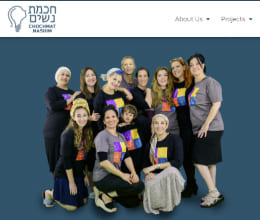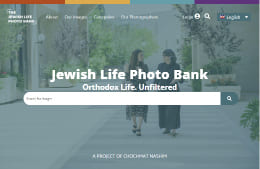Out of 50 states in the US, only 19 have mandated Holocaust education. New Jersey is one of them. (My mother, an educator and the daughter of survivors, was integral in creating that curriculum.) Tennessee is another. Last month, a school board in that state voted to remove the graphic novel Maus from their curriculum.
The board’s discussion of the Pulitzer Prize-winning book, written by Art Spiegelman and based on his father’s experiences, focused on swear words, nudity and images of “killing kids”. The nudity is the bare chest of the author’s mother after she committed suicide in a bathtub, the swear words are “damn” and “hell”.
As to the killing of children…it is the Holocaust. One cannot teach the Holocaust — really teach the Holocaust — without understanding that 1.5 million children were murdered simply because they were Jews.
The idea that 8th graders today cannot handle a few swear words, or appropriate and tragic cartoonized nudity, is absurd on its face, given what they are bombarded with on the internet, in advertisements, music videos and on social media — and what they hear and see from their peers.
The novel pulls no punches. It does not sugar coat nor whitewash. It does not sanitise nor absolve. It depicts the real horrors that were inflicted on Jews and others under the Nazis in their genocidal campaign to wipe us out.
In essence, it educates.
Do we really need depictions of hangings? Of piles of bodies? Of killing children to learn about the Holocaust? Yes, unfortunately, we do. It must, of course, be at an age when children can discuss, digest and comprehend, but there is no understanding of the evils of the Holocaust and what man can do to man without knowing the worst that happened.
We need to know that cattle cars stuffed with Jews were transported across Europe. We need to know that 1.5 million children were slaughtered because they were Jews. And we need to know that before we were crammed into ghettos and systematically stripped of all rights, Jewish stores were destroyed and synagogues torched, Jewish professors fired and Jewish children expelled from school.
I don’t recall ever not knowing about the Holocaust. I knew my mother had siblings she never knew. I knew my grandparents (who married after the war) each had spouses and children who were murdered by the Nazis. I knew their neighbours had moved into their homes and others had tried to turn them in. I knew because I heard bits and pieces and I knew because there was a constant sadness, an emptiness, and a pain that never went away. There were tears that spilled and voices that broke, and memories that haunted, uninvited.
And still, I didn’t know. I didn’t know until I stood in the gas chambers of Auschwitz. I didn’t know until I stared at the massive ash monument in Majdanek — all that is left of thousands of Jews. I didn’t know until I saw the town of Auschwitz, clearly, through the barbed wire of the camp.
And still I don’t know.
But I do know this. Whitewashing what happened, sterilising the story, euphemising the genocide that wiped out 6 million Jews in addition to the targeted Roma, disabled and homosexuals, will not save anyone’s innocence. Safeguarding children from the truth that is man’s inhumanity to man will not prevent that inhumanity. On the contrary, it will prevent them from developing the one truth, the only truth that matters when you are faced with a moral dilemma: The only thing needed for evil to triumph is for good people to do nothing.
For a child who faces constant peer pressure, desire to be liked, fear of being picked on or ostracised, the only thing that will separate him or her from the pack is a strong moral compass. And a moral compass cannot truly be developed if they do not understand what is at risk.
If they do not know that evil deeds start with evil words, they will not stand against them when they hear them. If they do not know that othering leads to dehumanizing, they will not object when they see it. If they do not know that evil needs no more encouragement than silence, they will not speak out.
School is for education. Education is for teaching children to reach their full human potential. If we prevent our children from understanding the worst that people can do, we give them no chance to be the best.
Originally published on The Jewish Chronicle


